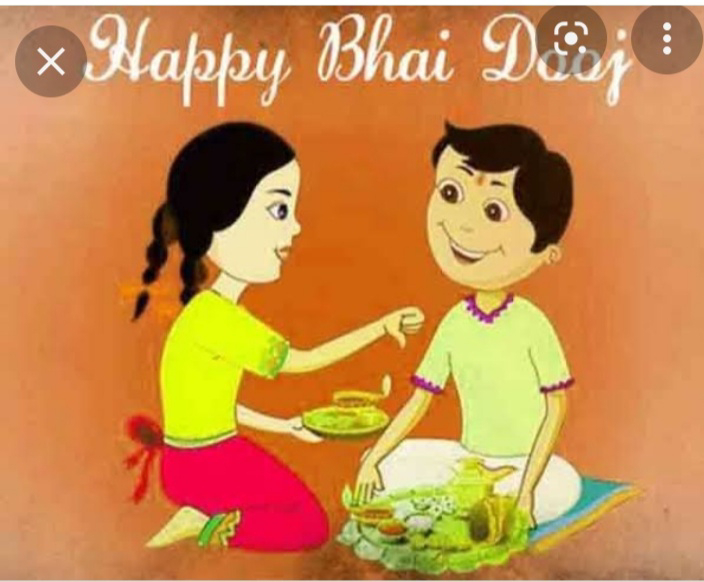Bhai dooj
Bhai Dooj is a significant Hindu festival celebrated two days after the Festival of Diwali. It falls on the second lunar day of the Shukla Paksha in the month of Karthik. Bhai Dooj is called by several other names such as Bhaubeej, Bhai Tika and Bhai Phonta, depending on the region and culture.
Bhai Dooj Celebration
The celebrations of Bhai Dooj resemble closely the celebration of Raksha Bandhan. On this day sisters perform aarti of their borthers and the latter hand over gifts to their sisters at the same time vowing for their protection and care.
The festival mainly concerns married women unlike the Raksha Bandhan which is celebrated both by unmarried as well as married women. Traditionally, the married women invite their brothers to their houses and serve them sumptuous meal including their favourite dishes. The brothers also give gifts and money to their sisters.
Different Names of Bhai Dooj
The festival of Bhai Dooj is known by different names in different parts of Indian sub continent and is celebrated on different dates, as described below-
- Bhai Dooj
Celebrated in the complete northern belt of India around the festival of Diwali on the second day of Vikram Samvat New Year. The festival is celebrated by Awadhis in Uttar Pradesh, Maithils in Bihar.
- Bhai Tika
The festival is celebrated in Nepal, and is one of the most important Nepalese festivals after Dussehra.
- Bhai Phonta
The festival is called Bhai Phonta in West Bengal and is celebrated on the second day of Kali Puja.
- Bhau Beej
Bhai Dooj is celebrated as Bhau Beej in the states of Maharashtra, Gujarat, Goa and Karnataka.
Despite the names mentioned above, the festival is also called “Yamadwitheya” signifying the meeting of Yama with his sister Yamuna on the second day after the new moon. The mythological story of Bhai Dooj is that, after slaying demon Narkasura, Lord Krishna went to his sister Subhadra, who welcomed her brother in the same way as the rituals followed today.
Rituals of Bhai Dooj
Performing traditional aarti of their brothers and applying tika on their forehead is a common ritual followed by the entire sister on Bhai Dooj. Those, whose brothers are unable to come due to some reason, pray with all their sincerity for their long life and venerate Moon God instead of their brothers. It is believed that Moon God acts as a messenger between brother and sister and conveys latter’s wishes and regards to the former.
Conclusion
The festival of Bhai Dooj celebrates the special bond between brothers and sisters and signifies that the same bond continues even after marriage and other worldly engagements. A sister’s love for her brother and a brother’s responsibility for her sister never changes.


Comments
Post a Comment